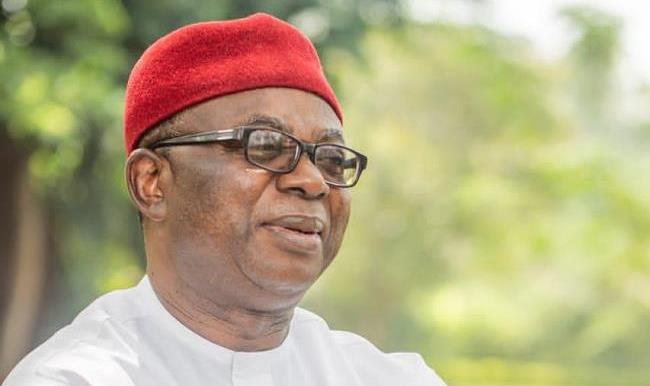Former member of the House of Representatives, Chief Sam Onuigbo, says state and local governments should produce their climate change mitigation frameworks to complement the efforts of the Federal Government.

Onuigbo, who is participating in the 29th session of the Conference of the Parties (COP29) in Baku, Azerbaijan, made the call in a statement issued on Thursday, November 21, 2024.
He said with the signing into law the Climate Change Act, the Federal Government had demonstrated commitment to legal instruments for climate change.
He said the setting up of the National Council on Climate; the Federal Government moved a notch higher to provide the bureaucratic structure to implement climate change policies and actions.
Onuigbo said that, unfortunately, most state governments had not taken stake to contribute more meaningfully towards efforts to protect the environment and mitigate climate change.
“The law provided for a representative of the chairman of Governors Forum to be on the national council meeting whenever Mr president is presiding.
“Similarly, the law provides for a representation of the Association of Local Governments of Nigeria (ALGON). That is 774 of them. What this has is that it does not stop there.
“It also provided for the inclusion of youths, women in their own right, apart from women who are coming from the Ministry of Women Affairs, even people with disabilities and the private sector.
“So, if you look at it generally you will see that the law has a wide range of provisions, it is ambitious in nature.”
Onuigbo called for more support from the National Council on Climate Change, which is all encompassing, adding that climate change efforts do not start and end with any ministry.
As the Chairman, House Committee on Climate Change in 8th National Assembly, Onuigbo sponsored Nigeria’s Climate Change Bill.
The bill was passed by both the House of Representatives and the Senate but rejected by President Mohammadu Buhari.
Onuigbo re-sponsored the bill during the 9th Assembly, addressing all the areas of conflict and expanding its scope in line with current needs.
It was eventually signed by Buhari in November 2021.
He said there is a link between climate change and insecurity.
“If what you planted over some time is destroyed by flood or desertification it has the potential to create problems for you.
“So, these things are intertwined, they are interrelated so, we have to look at the Act, follow its provisions and work together to achieve our aims,” he said.
By Uche Anunne
